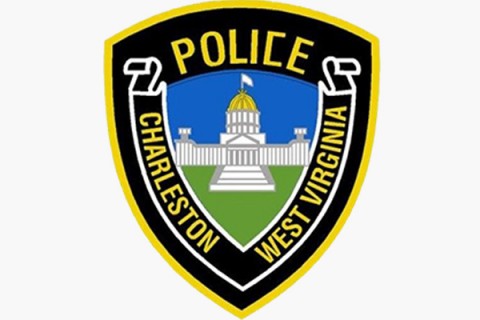Charleston/Kanawha County Evidence Documentation Project
The way that law enforcement polices has changed dramatically over the last ten years. Many police departments are taking a more comprehensive role in dealing with some of their biggest problems and looking at situations from another angle. They are coordinating local resources that bring a broad group of individuals and organizations together to create solutions.
Community policing has become a way of life for agencies to work hand-in-hand with the people they have sworn to protect and serve. Working with citizens in a collaborative manner creates a cohesive effort for a safe and crime-free place to live and work. According to DOJ’s Community Oriented Policing Services, “Community policing emphasizes proactive problem solving in a systematic and routine fashion. Rather than responding to crime only after it occurs, community policing encourages agencies to proactively develop solutions to the immediate underlying conditions contributing to public safety problems.”
The Charleston Police Department and Kanawha County Sheriff’s Department have focused for many years on building strong relationships with community leaders and citizens. Police agencies becoming more transparent in their dealings with the public helps build a higher level of trust with the citizens. Those same citizens will be the ones that step up when information is needed in a criminal investigation or solutions are needed to a specific problem in their neighborhoods. Building those relationships requires honesty and transparency on both sides by being able to come together and get input to help come to a reasonable conclusion for any problem or situation.
The funds awarded to the City of Charleston Police Department will be utilized to purchase in-car and body worn cameras for assignment to their Patrol Division officers and installed in their cruisers. The officers having the capabilities to video and audio tape their encounters have many benefits including officer safety, agency liability, training, criminal prosecution, citizen demeanor and community perception. The information gained from the videos can be utilized to exonerate or prosecute a suspect, train new police officers on officer safety techniques and protect a police agency from liability. Both types of cameras will be purchased within the first year to enable the replacement of aging and broken cameras currently in use.
The Kanawha County Sheriff’s Department will utilize their funds to purchase crime scene supplies that will be available to Patrol officers, as well as the evidence technicians and Detectives. These supplies will include covert audio and video devices, digital cameras with SD cards, digital voice recorders, portable hard drives and thumb drives and crime scene supplies such as robber gloves, gunshot residue (GSR) kits, drug test kits, batteries and bodily fluid testing kits. These items will allow them to more effectively investigate crimes and provide evidentiary support to assist in the full resolution of criminal cases through the court system. These items will be purchased throughout the entire grant period as needed to keep the supply readily available.
Having the technology and tools to gather, process and store evidence is paramount to the full investigation of crimes within our County. Solving crimes and arresting the perpetrators shows the public that these police agencies are working hard to protect them by removing criminals from their neighborhoods.
Project Design and Implementation
The City of Charleston Police Department recognized the benefits of moving towards a community oriented policing strategy during the 1990’s and has been building strong relationships with the community ever since. Sitting down with people from different sectors of the City, getting ideas and input from people that have a different focus than you do creates an atmosphere of sharing and broadening the knowledge base about living and working in Charleston. Police participation with youth mentoring programs, Neighborhood Watch groups, safety talks at churches and schools, 3rd grade student visits to Charleston’s Safety City and Prevention Resource Officers (PROs) at our local schools have been staples of the Charleston Police Department’s contribution to the community through non-enforcement methods.
Police departments had to find a new way to work with the public after the LA riots in 1992. Accountability between the police and the citizens became paramount in building a trust that the departmental administration would fairly address accusations and incidents of police brutality. When incidents like those continued to occur, it put police behavior and police-community relationships even more in the forefront. Building on existing collaborations, the Charleston Police Department created new opportunities to work with people that were willing to help us avoid violent and devastating situations like Las Angeles and Ferguson, MI. Working with groups like CARE (Call to Action for Racial Equality), RESET (police/clergy partnership), West Side 360 and the Charleston Main Streets Association show a united front when addressing issues in and around Charleston.
The City of Charleston will utilize these grant award funds to further the work currently being done under other federal and locally funded projects. The City was awarded BCJI funds in 2012 to conduct a Drug Market Intervention Initiative in the city’s highest crime district which helped alleviate a high drug sale problem. This initiative grew into a program entitled West Side 360 that will continue the efforts between the City, citizens, businesses, civic organizations and churches to continue to improve the neighborhoods and reduce crime for a safer community.
Capabilities and Competencies
The City of Charleston has received over $3.8 million in federal and state law enforcement grant funds over the last 13 years for projects ranging from our drug market intervention initiative, salary reimbursements for our Prevention Resource Officers, VOCA Crime Victims Assistant, VAWA Detectives and members of our Metropolitan Drug Enforcement Network Team. Our police department is actively involved with the Defending Childhood Initiative Handle with Care project, LEAD (Law Enforcement Assisted Diversion), Citizen’s Police Academy, NPAL and a Youth Leadership Academy.
The Charleston Police and Kanawha County Sheriff’s Department have, and will continue to broaden their outreach to members of the community by participating in different types of events and engagement opportunities. These collaborative efforts will continue for years-to-come as they have shown the success in getting neighborhoods involved to lower crime rates, getting services to people who need them and simply improve living in the greater Charleston area.
Plan for Collecting the Data Required for this Solicitation’s Performance Measures
The Grant Administrator POC will work with the Financial POC and the Project Director to gather the needed data and information to report on the quarterly and yearly performance measures required under this grant award. The Grant Administrator will be responsible for ensuring the funds are being expended according to federal guidelines and that the goals and objectives of this grant are being met. Data will be collected from tracking the purchase of the equipment, assignment to the officers and its usage.
For questions or comments email: druggrant@cityofcharleston.org





